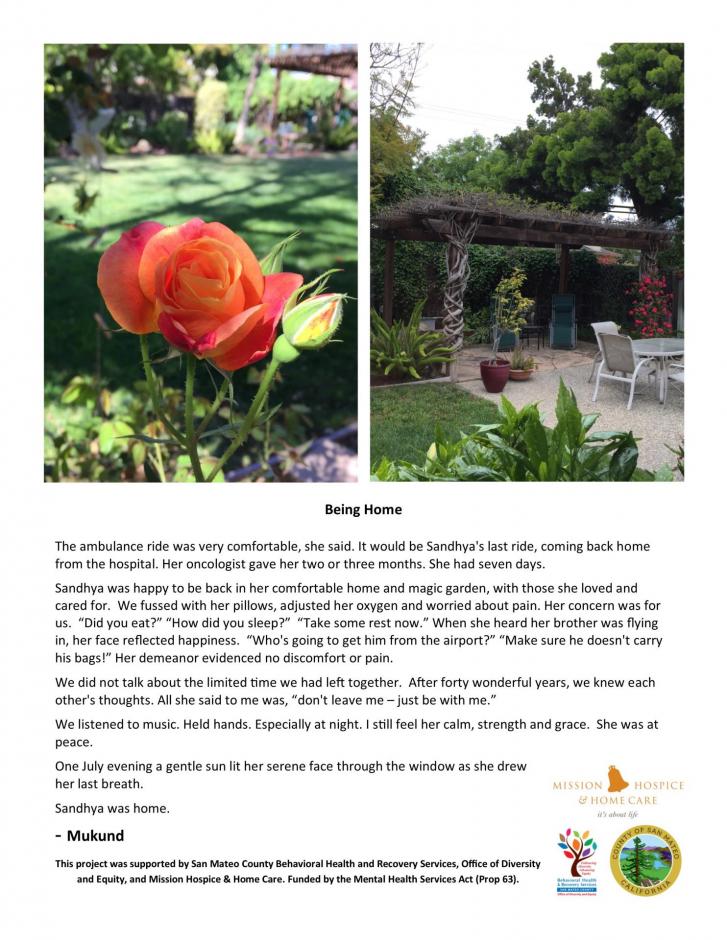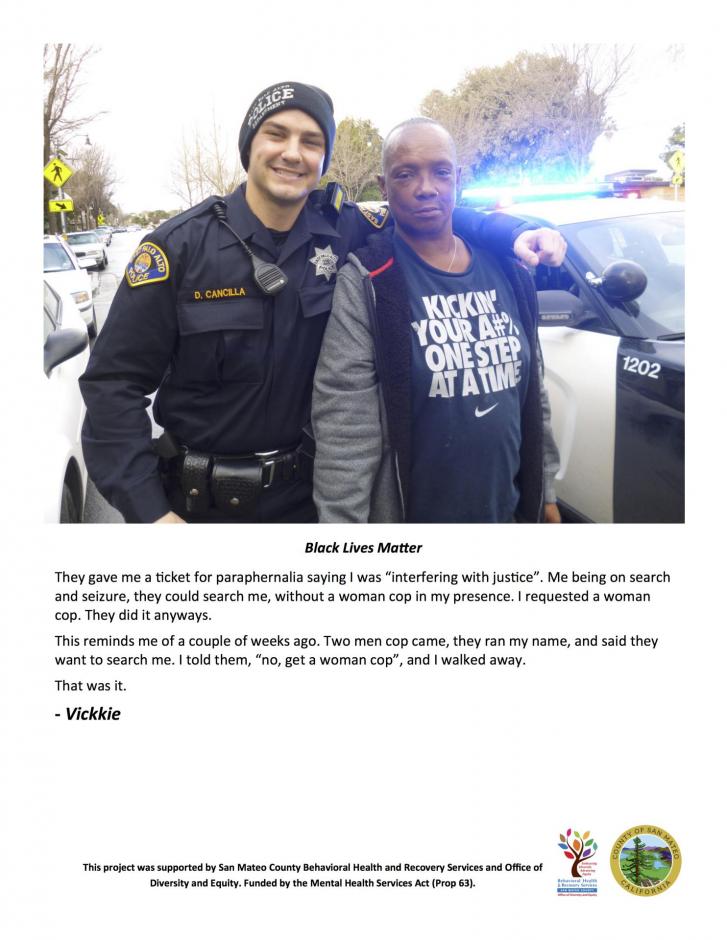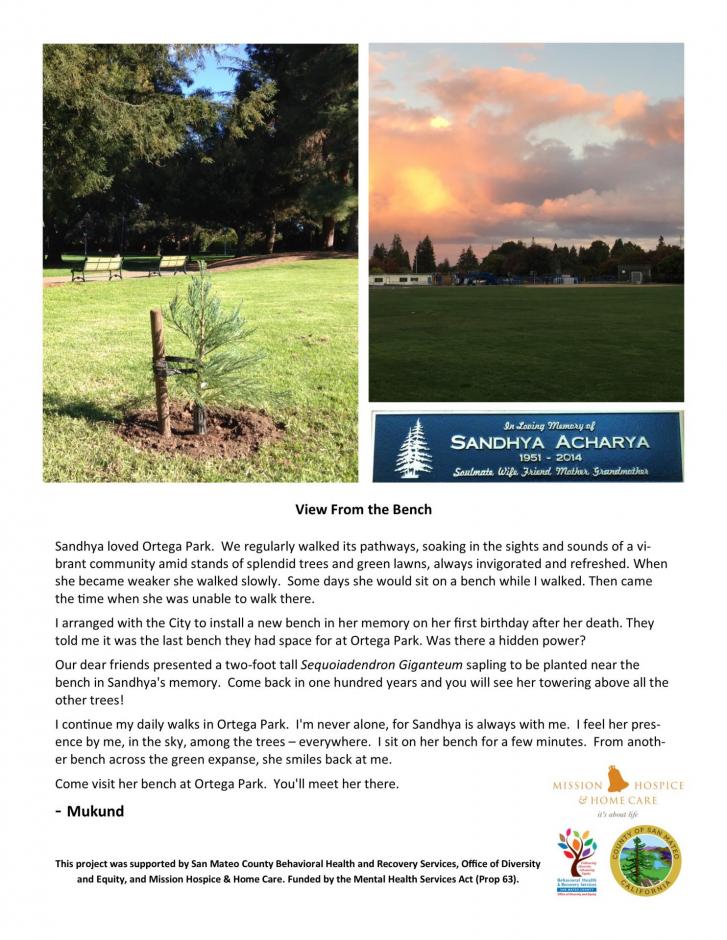Storytelling Facilitator Hub
Office of Diversity and Equity
The Office of Diversity and Equity’s (ODE’s) Storytelling program is a space for Consumers of San Mateo County’s Behavioral Health and Recovery Services to share their stories to make a meaningful impact on themselves and others.
Congratulations and thank you for your future work as a storytelling facilitator. This web-page functions as a hub for storytelling facilitators. Here, facilitators may apply for programmatic support, download program materials, and view a list of resources for helping clients.
Programmatic support for storytelling programs includes two options: ’General’ and ‘Plus’ programmatic support. Applications will be reviewed by ODE Storytelling within a week of submission and will be responded to promptly. Applications are accepted on a rolling basis.
Photovoice
Learn more information about our support options and to apply for Photovoice programmatic support here.
Download Photovoice programmatic materials below:
General forms and guides
Photovoice Training Slideshow
Photovoice Facilitator Guide
Media Release Form
Sign-In Sheet
Service Request & Referral Form
Participant Progress Checklist
Photovoice Template
Questionnaires
Photovoice Participant Pre-Program Questionnaire
Photovoice Participant Post-Program Questionnaire
Evaluations
Photovoice Participant Evaluation
Photovoice Participant Follow Up Evaluation
Photovoice Viewer Evaluation
Digital Storytelling
Learn more information about our support options and to apply for Digital Storytelling programmatic support here.
Download Digital Storytelling programmatic materials below:
General forms and guides
Digital Storytelling Facilitator Guide
Media Release Form
Sign-In Sheet
Questionnaires
Pre-Program Questionnaire
Post-Program Questionnaire
Evaluations
Participant Evaluation
Viewer Evaluation
Showing Stories
Sharing these stories with respect, care, and intention is very important to us and our storytellers. We’d like to share some of our tips and tricks for sharing stories and we ask that you follow this guide to effectively share these stories with your group.
FAQ
I have an idea for a Photovoice but I don’t know how to make it happen.
Fill out and review the application form; a liaison from the Storytelling Program will consult and support you through the process. You may also request a co-facilitator and/or clinician to be present including other materials needed to complete a workshop.
I want to share stories. What do I need to know?
Guides on sharing stories are available in the Facilitator Hub. The basic materials required to share stories are the viewer evaluations and possible storytellers to present their stories that focus on a specific theme.
Who can share stories?
Anyone! There are no age restrictions. More importantly, storytellers are able and willing to share their stories about a specific topic and are given the appropriate support throughout the process.
Why are the questionnaires and evaluations important and how do I fill them out?
The questionnaires and evaluations are important because they provide us, the facilitators, with feedback to improve our facilitation, as well as measuring the effectiveness of the program. We want to continue this program, so we need to prove that it works. We highly encourage that facilitators submit these forms back to us at the end of their workshops to track the growth of our program.
When filling out an evaluation, ensure that the Participant ID next to each participant’s name on the sign-in sheet corresponds to their pre and post-program questionnaire. This way, we can track the growth of each participant.
What is the benefit of storytelling to the storytellers’ participants and clients?
The stories can be beneficial and empowering to the listeners. The nature of the topics in behavioral health is often stigmatized, and we bring light to these issues to help individuals who need a voice. Storytelling can clean up the scattered nature of trauma. Hearing others’ stories helps broaden the definition of recovery and spread hope. Sharing our final stories after a storytelling group can feel empowering to people because they are affecting change.
How do I find participants for the workshop?
Workshops will have their own supporters who will help try to address issues that are present in their communities.
How many CSIP interns can do a workshop?
Usually, there will be two CSIP interns per year. Each intern will need a proposal with their intent and have their coordinator approve and review it.
Resources
ODE Storytelling
Practicing Cultural Humility Video Series
Storytelling Framework
Storytelling One Pager
ODE Storytelling Report FY 16-17
ODE Storytelling Report FY 17-18
Partnered Communities
Mission Hospice and Home Care
San Mateo County Spirituality Initiative
Queer in San Mateo County
SafeSpace
Nuestra Casa
Testimonials
How has this program changed the way you view your story?
“I was actually able to tell one of my stories in a really effective way and I am excited to try this during trainings.”
“I have chosen to make different emphasis in my stories and shorten them to be concise and more effective.”
“I feel a sense of empowerment and inspired by others sharing their stories and not being afraid.”
How will you implement the lessons and skills discussed in this workshop?
“Think more about what stories would be helpful and craft them for key points in the curriculum.”
“Facilitator: very open, organized, prepared–most of all offered a sense of unity among the group, feedback, and was diligent to facilitate everyone to share.”


